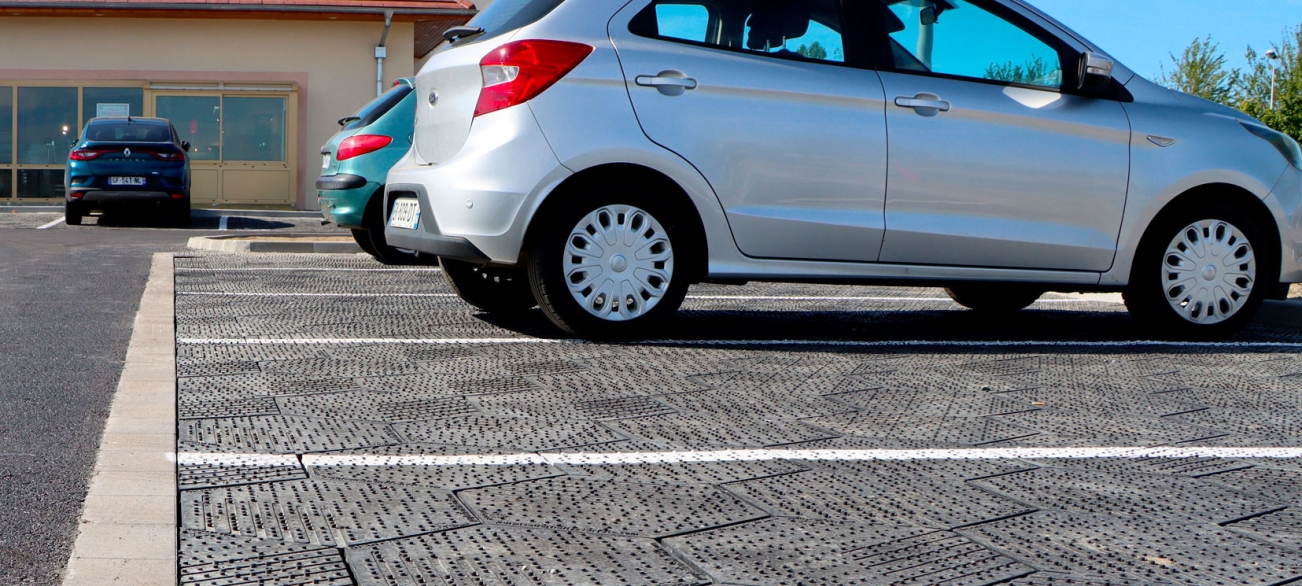Water management on a plot-by-plot basis and the Climate Resilience Act, which aims to achieve zero net artificial development by 2050, are making it difficult to obtain planning permission. “Initially, the idea was to offer a simple solution that would reduce the costs associated with these regulatory require-ments”, explained Sébastien Molas, co-founder alongside Pierre Quinonero of Purple Alternative Surface, which offers floor tiles made entirely from polymer waste intended waste that would otherwise be incinerated or disposed of in landfill sites. After making a mould and a prototype to prove the feasibility of the concept, they turned to Cetim. “In addition to its in-depth knowledge of plastic-related issues, Cetim has cutting-edge equipment for carrying out complex material qualifica-tion tests”, disclosed Sébastien Molas.
Mutual benefits
“The project led by Purple Alternative Surface is directly in line with the work carried out here on plastic and composite materials with a low environ-mental footprint”, confided Frédéric Ruch, from Cetim. It is also consistent with Cetim’s strategic programme, Cedre, which aims to strengthen the position of the mechanical engineering industries in the green transition.
Eighteen months of studies, tests and material analyses were carried out with Cetim’s experts helping the start-up to select the key tests to be conducted. This support and guidance is still being provided today. Both sides have benefited from this partnership, Cetim put the start-up in contact with its network and invited it to speak at the “Polymer materials and the circular economy” conference. As part of this initiative, Cetim also approached Cerema, a public body under the authority of the French Ministry of Ecological Transition and Territorial Cohesion, which helps the State and local authorities to develop, introduce and assess public development and transport policies. They are now working together on the sustainability of road surfaces made from plastic and composite waste.



